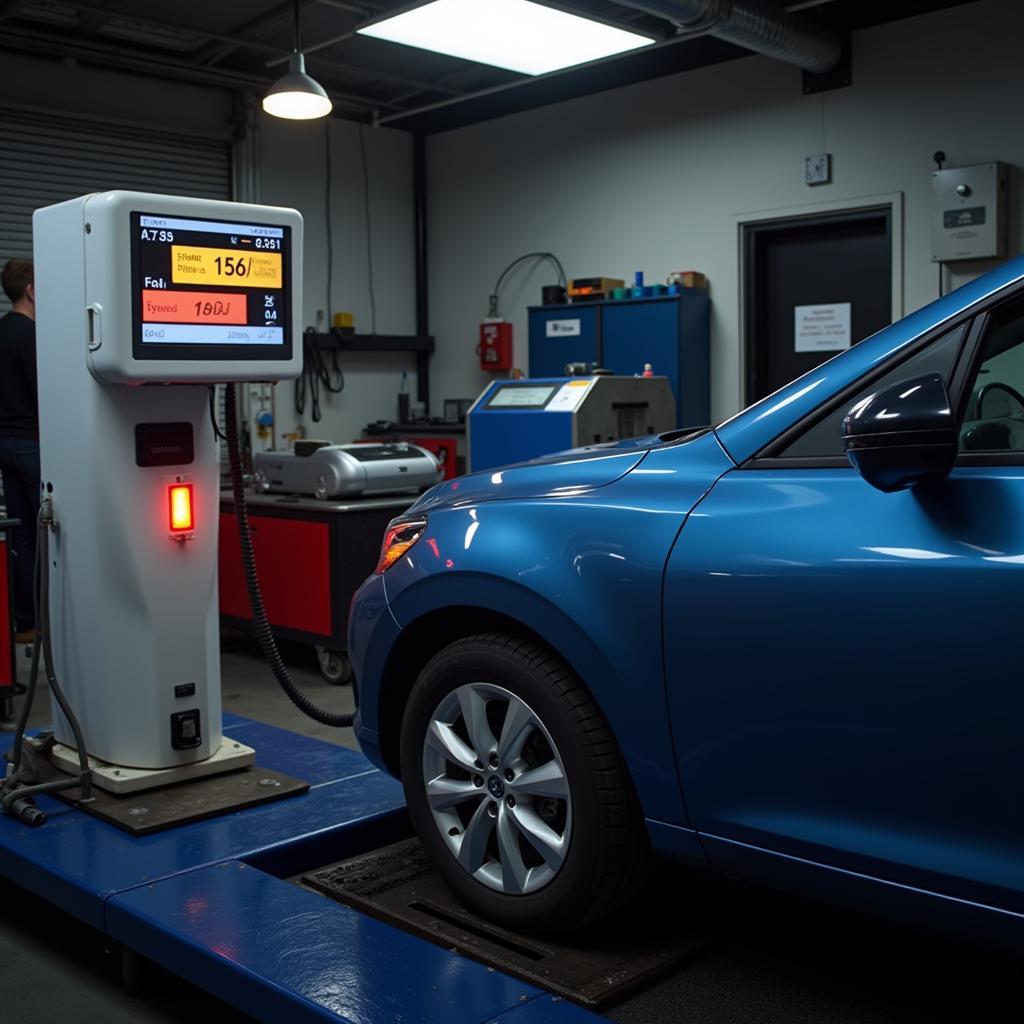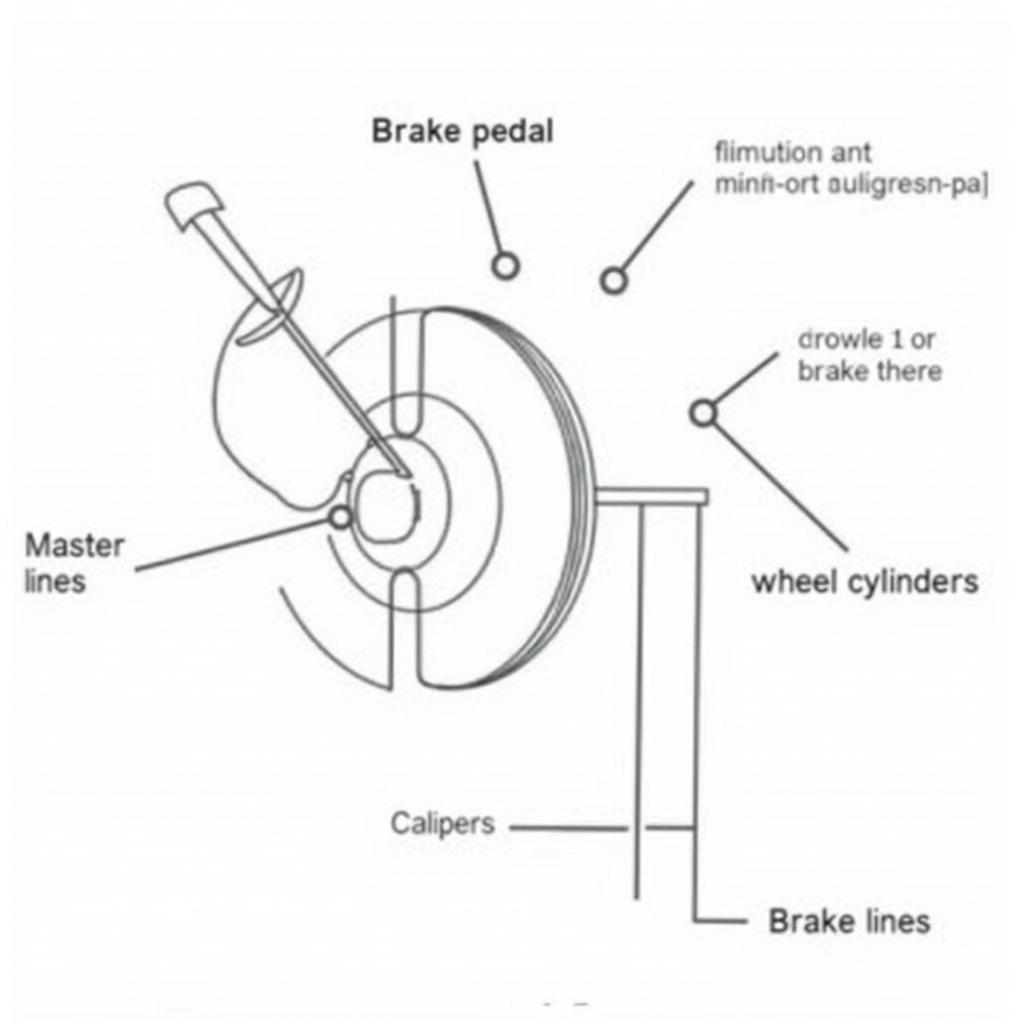Do You Have to Have Your Car Serviced By Law?
Owning a car comes with responsibilities, and regular maintenance is one of them. But does the law actually require you to get your car serviced? The answer isn’t a simple yes or no. Let’s dive into the legal requirements and understand why regular car servicing is crucial even if it’s not always legally mandated.
Is Car Servicing a Legal Requirement?
Most countries, including the US, don’t have a law that explicitly states you must service your car regularly. There’s no “car service police” knocking on your door to check your service history. However, that doesn’t mean you can completely disregard car maintenance.
Your Responsibility as a Vehicle Owner
While regular servicing might not be directly mandated by law, other laws indirectly emphasize its importance.
- Roadworthiness: You have a legal obligation to ensure your vehicle is safe to drive. This means ensuring your brakes work, tires have sufficient tread, lights function correctly, and all critical components are in good working order. Regular servicing helps identify potential issues before they become safety hazards.
- Emissions Standards: Many regions have emissions laws in place to control air pollution. A well-maintained car is more likely to pass emissions tests, keeping you compliant with environmental regulations.
 Emissions Test Failure
Emissions Test Failure
The Consequences of Neglecting Car Service
Ignoring regular car maintenance might seem tempting, especially if you’re on a tight budget. However, the long-term consequences can far outweigh any short-term savings.
- Increased Risk of Breakdowns: Neglected vehicles are more prone to breakdowns, potentially leaving you stranded and incurring costly repairs.
- Compromised Safety: Worn-out brakes, faulty lights, or other neglected issues can significantly increase the risk of accidents, putting you and others on the road in danger.
- Reduced Fuel Efficiency: A poorly maintained engine can consume more fuel, leading to higher running costs.
- Voided Warranty: Many manufacturers require documented regular servicing to maintain the vehicle’s warranty. Skipping service appointments could result in voiding your warranty, leaving you to cover expensive repair bills.
“Regular car servicing is like preventative healthcare for your vehicle,” says John Smith, Senior Automotive Engineer at CarServiceOnline. “It’s far more cost-effective to address minor issues early than to deal with major breakdowns and costly repairs later.”
How Often Should You Service Your Car?
The recommended service intervals vary depending on your car’s make, model, and your driving habits. Refer to your owner’s manual for specific guidelines. Generally, a basic service every 6 months or 7,500 miles and a more comprehensive service annually or every 15,000 miles is a good starting point.
 Car Service Appointment
Car Service Appointment
Choosing the Right Car Service Provider
Selecting a reputable and trustworthy car service provider is crucial.
- Look for certified mechanics with experience working on your car’s make and model.
- Consider factors like customer reviews, pricing transparency, and warranty on repairs.
Remember, you don’t have to go to the dealership for servicing unless your warranty specifically requires it. Independent garages and specialized service centers can often provide high-quality service at a more competitive price.
Do you have questions about finding a reliable car service provider in your area? CarServiceOnline provides comprehensive reviews and ratings of car service centers nationwide. Find a trusted mechanic near you.
Conclusion
While there might not be a law explicitly requiring regular car servicing, the responsibility to maintain a safe and roadworthy vehicle falls on you as the owner. Regular servicing not only ensures your safety and compliance with other regulations but also helps prevent costly breakdowns, extends the lifespan of your vehicle, and can even save you money on fuel.
If you’re unsure about what your car needs or when it was last serviced, it’s always best to err on the side of caution and schedule an inspection with a qualified mechanic.
FAQs about Car Servicing and Legal Requirements
1. Can I service my own car?
While you can perform some basic maintenance tasks yourself, it’s generally recommended to leave more complex repairs and servicing to qualified mechanics, especially if your car is still under warranty.
2. What happens if I get into an accident with an unserviced car?
If your car hasn’t been serviced according to manufacturer recommendations and an accident occurs due to a mechanical failure that could have been prevented by servicing, your insurance claim could be impacted.
3. Do I have to go to the dealership for servicing during the warranty period?
You can choose to have your car serviced at an independent garage or service center during the warranty period, but it’s crucial to ensure they use approved parts and follow the manufacturer’s service schedule to maintain the warranty’s validity. Can you get your car serviced without a warranty?
4. Is there a grace period for servicing my car after the recommended mileage or time interval?
It’s best to stick to the manufacturer’s recommended service schedule as closely as possible. If you do go slightly over the mileage or time limit, it’s usually not a major concern, but try to schedule the service as soon as possible.
5. Can I complain if I’m unhappy with the service I received?
Yes, if you have a legitimate complaint about a car service provider, you can try to resolve it with the business directly. If that’s unsuccessful, you can contact consumer protection agencies or leave a review on platforms like CarServiceOnline to warn others. How to complain about car dealership service
Need more information about car servicing?
Check out our other articles:
- Should I service my own car?
- Is it illegal to not service your car?
- What are care and service hours?
For expert advice and personalized assistance, reach out to our team:
WhatsApp: +1(641)206-8880
Email: [email protected]
We’re available 24/7 to answer your questions and provide the support you need!

